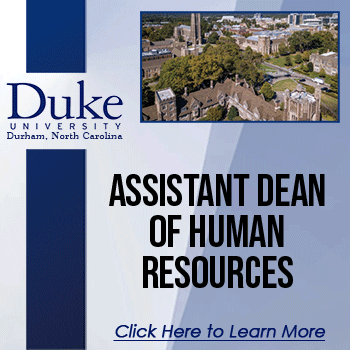Postdoctoral Researcher in Coral Reef Ecology (IS-0401-09)
Job Description
OPEN DATE: January 3, 2024
CLOSING DATE: January 24, 2025
POSITION TYPE: Trust Fund
APPOINTMENT TYPE: Temporary Not to Exceed One (1) Year
SCHEDULE: Full Time
DUTY LOCATION: Edgewater, MD
Position sensitivity and risk: Non-sensitive (NS)/Low Risk
Position sensitivity and risk: Non-sensitive (NS)/Low Risk
Open to all Qualified Applicants
What are Trust Fund Positions?
What are Trust Fund Positions?
Trust Fund positions are unique to the Smithsonian. They are paid for from a variety of sources, including the Smithsonian endowment, revenue from our business activities, donations, grants and contracts. Trust employees are not part of the civil service, nor does trust fund employment lead to Federal status. The salary ranges for trust positions are generally the same as for federal positions and in many cases trust and federal employees work side by side. Trust employees have their own benefit program, which may include Health, Dental & Vision Insurance, Life Insurance, Transit/Commuter Benefits, Accidental Death and Dismemberment Insurance, Annual and Sick Leave, Family Friendly Leave, 403b Retirement Plan, Discounts for Smithsonian Memberships, Museum Stores and Restaurants, Credit Union, Smithsonian Early Enrichment Center (Child Care), Flexible Spending Account (Health & Dependent Care).
Conditions of Employment
- Pass Pre-employment Background Check and Subsequent Background Investigation for position designated.
- Complete a Probationary Period.
- Maintain a Bank Account for Direct Deposit/Electronic Transfer.
- The position is open to all candidates eligible to work in the United States. Proof of eligibility to work in U.S. is not required to apply.
- Applicants must meet all qualification and eligibility requirements within 30 days of the closing date of this announcement.
OVERVIEW
The Smithsonian’s MarineGEO program, based at the Smithsonian Environmental Research Center in Edgewater, Maryland, seeks a postdoctoral scholar to advance a new research project focusing on trait-based analyses of climate vulnerability and functional change in marine ecological communities of the Florida Reef Tract. The project involves standardized field surveys of reef fish and invertebrate communities across 74 sites, funded by the EPA South Florida Program, and leverages a wealth of complementary data from the long-running benthic survey time series at the same reef sites, from the Dry Tortugas in the south to Martin County in the north, led by the Coral Reef Evaluation and Monitoring Program (CREMP) and SECREMP. The candidate will lead a team conducting intensive surveys of fishes and mobile macroinvertebrates using globally recognized Reef Life Survey protocols. The Postdoc will work with PIs Emmett Duffy (Smithsonian), Leah Harper (Smithsonian), Rob Ruzicka (Florida Fish & Wildlife Conservation Commission and CREMP), and Dave Gilliam (Nova Southeastern University and SECREMP).
Research Context: This project seeks to understand and build predictive models of the influence of accelerating anthropogenic change on reef biodiversity and community structure, and to provide a key baseline and predictive foundation for informing management responses to stressors related to climate warming, reef structural simplification, and fishing. As part of this project, we are censusing fishes and mobile macroinvertebrates at all 74 CREMP and SECREMP sites in 2024 and 2025, and assembling an unprecedented database of co-located coral, fish, and invertebrate community structure surveys, water temperature readings, and reef physical structure measurements that will be analyzed to understand ecosystem change across the Florida Reef Tract.
Research Environment: The postdoc will be based in Emmett Duffy’s group in the MarineGEO program at the Smithsonian Environmental Research Center in Edgewater, Maryland, but will work closely with the Co-PIs and a diverse group of experts in marine science and coral reef ecology in Florida. The postdoc will also have opportunities to participate in MarineGEO network-wide activities.
DUTIES AND RESPONSIBILITIES
- The postdoc will be a key member of the project team, co-leading organization of and participating in fieldwork (primarily in Summer 2025), as well as data collation, synthesis, and the writing of peer-reviewed manuscripts.
- The postdoc will attend and present results of the research at conferences.
- Research activities include diver visual surveys of coral reef fishes and invertebrates, statistical analysis and modeling of data linking environmental drivers to biodiversity and community structure, literature data mining, and potentially meta-analysis.
- The postdoc will have opportunities to build skills including big data management and analysis, team science coordination, and community engagement.
QUALIFICATION REQUIREMENTS
Basic Requirements:
- Doctoral degree in a relevant field of natural, social, or interdisciplinary sciences.
- Demonstrated skills in one or more of the following: marine ecology, quantitative ecology, coral reef ecology.
- Ability to plan, execute, communicate, and publish independent and collaborative research.
- Strong quantitative spatial and coding skills (e.g., Python, R, GIS).
- Eagerness to learn from and work with a diverse, interdisciplinary community.
- AAUS-certified scientific diver (current active diver status strongly preferred).
Desired Qualifications:
- Strong track record of lead-authored scientific publications.
- Experience quantifying, mapping, and analyzing data on biodiversity, community structure, and climate-mediated ecological change.
- Knowledge of West Atlantic reef fishes and experience within situ fish visual census.
Education completed outside the United States must be deemed equivalent to higher education programs of U.S. Institutions by an organization that specializes in the interpretation of foreign educational credentials. This documentation is the responsibility of the applicant and should be included as part of your application package.
Any false statement in your application may result in rejection of your application and may also result in termination after employment begins.
The Smithsonian Institution values and seeks a diverse workforce. Join us in "Inspiring Generations through Knowledge and Discovery."
Resumes should include a description of your paid and non-paid work experience that is related to this job; starting and ending dates of job (month and year); and average number of hours worked per week.
What To Expect Next: Once the vacancy announcement closes, a review of your resume will be compared against the qualification and experience requirements related to this job. After review of applicant resumes is complete, qualified candidates will be referred to the hiring manager.
Relocation expenses are not paid.
Commitment to Diversity, Equity, and Inclusion
The Smithsonian Institution provides reasonable accommodation to applicants with disabilities where appropriate. Applicants requiring reasonable accommodation should contact SERCjobs@si.edu. Determinations on requests for reasonable accommodation will be made on a case-by-case basis. To learn more, please review the Smithsonian’s Accommodation Procedures.
Commitment to Diversity, Equity, and Inclusion
The Smithsonian Institution provides reasonable accommodation to applicants with disabilities where appropriate. Applicants requiring reasonable accommodation should contact SERCjobs@si.edu. Determinations on requests for reasonable accommodation will be made on a case-by-case basis. To learn more, please review the Smithsonian’s Accommodation Procedures.
The Smithsonian Institution is an Equal Opportunity Employer. We believe that a workforce comprising a variety of educational, cultural, and experiential backgrounds support and enhance our daily work life and contribute to the richness of our exhibitions and programs. See Smithsonian EEO program information: https://www.si.edu/oeesd.
About Smithsonian Environmental Research Center
The Smithsonian Environmental Research Center (SERC) integrates provides world class science, education, and research training to meet the environmental challenges of the 21st century. SERC leads research and education on coastal ecosystems—where the land meets the sea—to inform real-world decisions for wise policies, best business practices, and a sustainable planet. Our work is urgent. The world’s coastal zones are home to more than 70 percent of the global population and experience intense economic activity. Environmental change is accelerating at an alarming rate. Since its creation in 1965, SERC has been conducting peer-reviewed research to understand the causes and consequences of rapid global change and helping people through education, citizen science to become responsible and effective stewards of the Earth.
*Please mention you saw this ad on DiversityInAcademe.*
Be Seen By Recruiters at the Best Institutions
Create a FREE Profile to be Seen!






